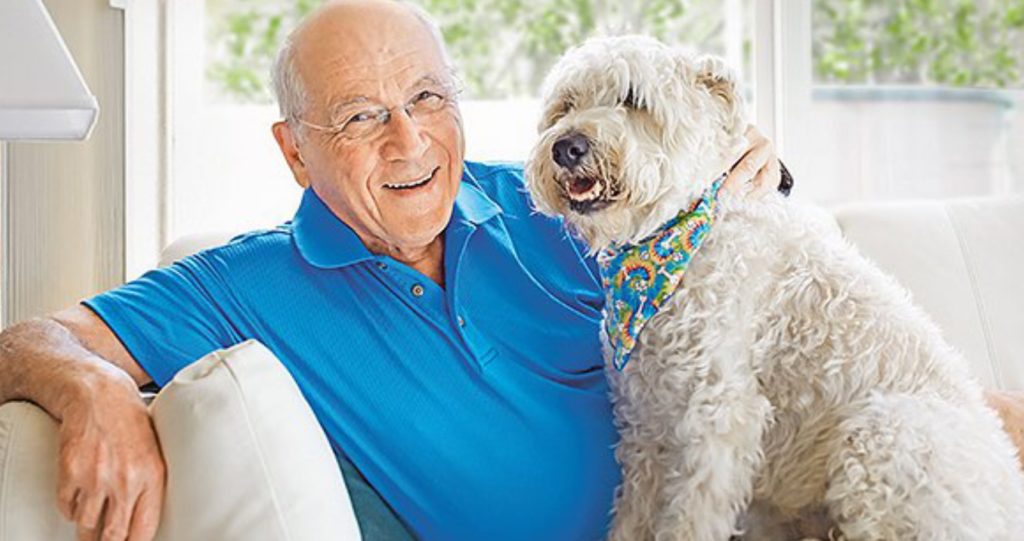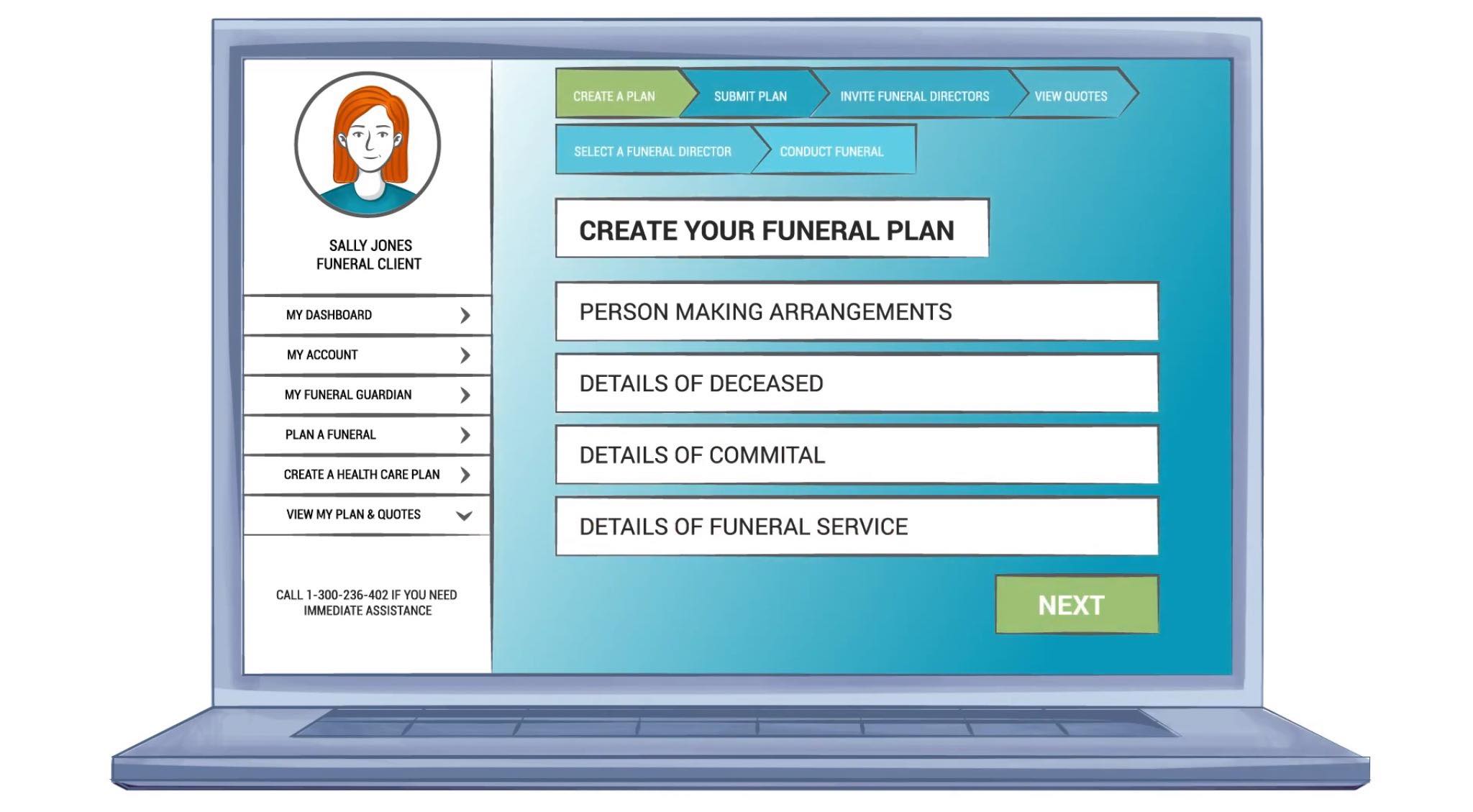OUR PETS PLAY such an important role in our lives. They offer companionship, unconditional love and help ease stress and other ailments.
Sadly, everyone who cares for a pet will one day face the illness, old age or death of their beloved animal friend. It is as natural and necessary to grieve for the loss of a pet as it is for any loved one who dies.
In this guide you will find information on:
- End-of-life pet care
- Euthanasia
- Coping with the loss of a pet
- Pet funerals

End-of-life pet care
Coping with the impending loss of a pet is one of the most difficult experiences a pet owner will face.
Whether your pet is simply old or has been diagnosed with a terminal illness, it’s important to calmly guide the end-of-life experience and minimise any discomfort or distress.
As your pet’s health declines, you may elect to care for your pet at home—with the supervision of a veterinarian—or you may decide to end his suffering with euthanasia.
What exactly happens when an animal is put down?
Your veterinarian has special training to provide your pet with a humane and gentle death. Most often, he or she uses a two-step process. First, the pet is injected with a sedative to make him calm and comfortable.
Next, he injects a special medication. These drugs function in such a fashion that the animal experiences no awareness of the end of life. The process is akin to undergoing general anaesthesia for a surgical procedure. The process takes about 10 to 20 seconds. The veterinarian then checks to make sure that the animal’s heart has stopped. With this procedure, there is no suffering.
Is there a “right time” to euthanise an animal? And how will I know when that is?
If your animal has episodes of obvious suffering during the day or night, it may be time to plan euthanasia. It is important to ask your veterinarian for the exact signs of suffering likely to be associated with the condition or disease that your pet has. Sometimes an animal will continue to eat or drink in spite of pain, panting or disorientation. If you are not sure how much your pet is suffering, keep a daily record of the good times versus the bad times.
Then you can decide when the quality of life is so poor that it is time for you to give him the gift of ‘good death.’ Sometimes people are tempted to delay the moment of euthanasia, because we anticipate our own intense grief. Unfortunately, we may regret that we allowed the pet to linger too long.
Coping with the loss of your pet
Learning more ahead of time about options concerning your pet’s death, and what to expect when you lose a pet, can help you and your family cope with this difficult loss. Planning ahead for our pets has many benefits and it’s easier to do when you’re not feeling the grief of your loss.
Is it normal for me to feel so angry/sad/confused after my pet has passed away?
Many forms of grief are completely normal. The most distressing are hallucination-type experiences that leave an impression that you are hearing familiar sounds of your pet. Some people even think that they see their pet out of the corner of their eye, especially after just waking up. Often, it is the most responsible owners who feel guilty and confused about the choices they made regarding the end of their pet’s life. Occasionally, a person may feel temporarily angry with their veterinarian or others involved in end-of-life issues. These feelings of anger may be our attempts to distract from the ultimate encounter with the sadness of the loss.
What are some things I can do to work through my grief?
The most important thing is to recognise that the loss of a pet is a serious event that society does not always respect. Your first task is to take care of yourself. Grief is a normal process, and time really does heal.
Sometimes it helps to create a special place in your home to which you can go when you want to remember your pet. Although remembering may be painful at first, eventually that pain will turn into sweet memories.
How long should we wait until we get another pet for the family?
Even though your house feels very empty, and your young children may be asking for a replacement right away, it is best to wait at least one month before bringing home a new pet. If you feel attracted to a new pet, don’t worry that it is a betrayal of the lost animal. Your ability to give a good home to a new pet is really a compliment to your previous relationship.
Pet Funerals
While the concept of a pet funeral is relatively new, the value of holding a commemorative event can be an important part of the healing process. Whether you choose burial or cremation, the only right approach is the one that helps you and your family say farewell to your pet.
Pet funeral homes are helping families plan meaningful services. These funeral homes are staffed by people who understand that pet loss may be just as painful as losing a human family member. They offer burial and cremation services, and, for a fee, provide caskets, urns and grave markers designed especially for pets.
If you don’t want to use a pet funeral home, you can still plan a meaningful event.
Consider the people who were significant in your pet’s life. Invite them to participate. Think about your pet’s favourite places. Was the backyard or window seat the spot where you were most likely to find him or her? Hold the event in that spot or bring photos of their special place to the funeral home. Gather additional photos and memorabilia, like pet toys, so guests can recall favourite memories. Was there a favourite food that held your pet’s attention?
Activities can include lighting a candle and inviting friends and family to write down their memories and share them. Take a walk along a favourite route your pet enjoyed. Plant a tree or shrub to honour your pet’s life. In honour of your pet, encourage donations to an organization that benefits animals.




